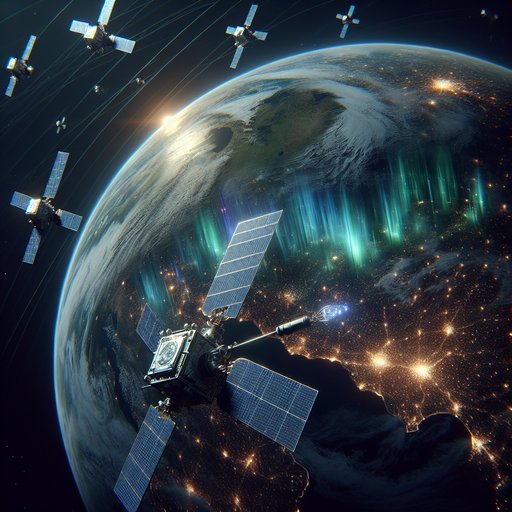- Details
- Written by: Bob Fratenni

A giant weak spot in Earth’s magnetic field is expanding, and the people who rely on satellites—from weather forecasters to farmers and firefighters—should read that headline as a warning label, not as trivia [3][4]. When the planet’s electromagnetic armor buckles, spacecraft face more radiation, more glitches, and more risk at the very moment we are stuffing low Earth orbit with hardware. We have turned the night sky into a worksite—and sometimes a scrapyard—just as nature reminds us that space is not inert. In an era when an astronaut can film a gleaming satellite train gliding above living auroras, the cultural stakes are as high as the technical ones [1]. If we want the heavens to remain legible—to science and to story—we must govern them as a commons rather than a frontier.
- Details
- Written by: Roberto Joost

The internet was once imagined as a great equalizer, a vast network connecting people and spreading knowledge. What we actually got is something far stranger: an online world where most of the traffic doesn’t come from people at all, but from machines endlessly talking to one another. More than half of everything that moves across the network today is generated by bots. That fact alone should make us pause. But the real story isn’t that bots exist, it’s what they are being used for. Because not all bots are created equal. Some act as digital servants, working for us, while others have become digital parasites, draining energy and attention for no real human benefit.
- Details
- Written by: Alex Dupcheck

On October 15, 2025, the phrase “Game of chicken...poop” feels less like a local quip than a national diagnosis. When politics devolves into brinkmanship and spectacle, democracies expose a core vulnerability: the ease with which charisma and outrage eclipse competence and deliberation. A recent North Carolina commentary captured that mood with its blunt headline, a reminder that governance too often resembles a dare on a crowded highway rather than a sober negotiation at a well-run table [5]. When the incentives of direct electoral politics reward emotive appeals over demonstrated capacity to govern, the results can be comic in the headline and catastrophic in practice. The question is not whether voters should choose their representatives—it’s whether a system built on applause meters can still produce the boring, careful adults who keep a republic humming.
- Details
- Written by: Valenenzia Gruelle

Digital nomads are often sold as postcards: a laptop by the sea, productivity unmoored from geography. But the real story is less romantic and more consequential. As hospitality and work platforms compete to court this mobile cohort, their algorithms quietly arbitrate who gets seen, paid, housed, or left out—and which towns flourish or fray. The premise is compelling: digital nomads could reshape global work dynamics, business ecosystems, and travel culture [1]. The question for October 2025 is whether we will let scaling software write the social contract, or whether societies—hosts and travelers, young and old—will claim a say in how that reshaping occurs.

























































